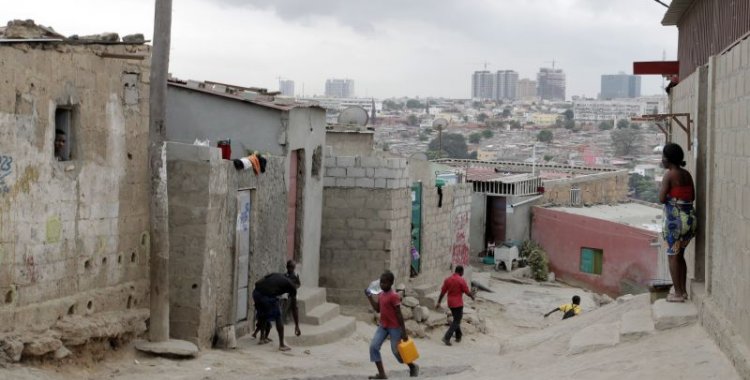In the study, which Agência Lusa had access to, the authors emphasize that the data reveal “profound socio-economic vulnerabilities, which have made it extremely difficult to comply with restrictive measures of the state of emergency, within the scope of measures to combat Covid- 19 ”.
According to the data collected, more than a third of a total population of 30 million suffered situations of extreme poverty, in the 12 months preceding the study, being "often" or "always" deprived of essential goods, including salaries or other forms income.
The document emphasizes that Angola has been experiencing a long period of state of emergency, with social isolation, since the end of March, to combat the spread of the pandemic and although there seems to be a broad agreement between policy makers and citizens on the need to if these measures are implemented, the government and its development partners must implement strategies that make it possible to mitigate the impact of compliance with confinement by the most deprived families.
“More than a third (35 percent) of Angolans lived in a situation of“ extreme poverty ”during the year prior to the survey, which means that they often suffered from shortages of food, drinking water, medical and medication assistance, fuel for cooking and salary or other income ”, points out the study.
The data show that approximately the same proportion (34 percent) experienced “moderate poverty” and only 7 percent reported not experiencing situations of scarcity of essential goods, with situations of “extreme poverty” being reported more frequently in rural areas. (46 percent, against 30 percent in urban areas) and in the eastern (51 percent) and southern (41 percent) regions.
In the reference period, the survey indicates, more than a third of Angolans (36 percent) were without wages or other income "often" or "always" during the year prior to the survey, in addition to the 32% who experienced this situation " just once or twice ”or“ several times ”.
"Only one in four (26 percent) regularly had salaries or other income," says the study, adding that this situation is more common in rural areas (44 percent) than in cities (38 percent) and is more striking in the center region (44 percent).
With regard to the issue of food, the data indicates that two thirds (67 percent) of Angolans were left without enough food at least once during 2018, including one in five (21 percent), who were “ often ”or“ always ”, mainly in the eastern (77 percent) and northern north (70 percent) regions.
Regarding medical and medication assistance, in 2018, about eight (75 percent) out of ten Angolans did not benefit from it, including one third (32 percent) who did not have medical care “often” or “always”, highlighting it the eastern region, with almost half (45 percent) of residents without this right to this basic need.
Afrobarómetro's first public opinion survey in Angola was carried out with 2,400 adult Angolans, between 27 November and 27 December 2019, with a margin of error of around two percentage points and a 95 percent confidence level.
Afrobarómetro is a pan-African, non-partisan research network that provides quantitative data on Africans' experience and assessment of democracy, governance and quality of life.
The organization has already carried out seven public opinion rounds in 38 countries between 1999 and 2018, with the eighth round scheduled for 35 African countries between 2019/2020.







